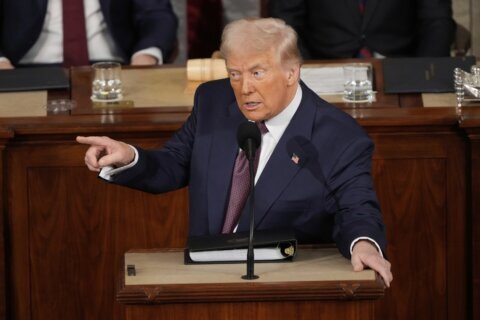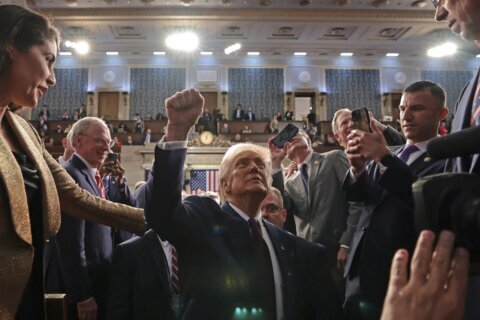Historically, presidential immunity has meant that a sitting president of the United States is granted judicial immunity for official acts taken as president. However, the Constitution doesn’t directly address presidential immunity from civil or criminal lawsuits, and there’s no document to point to an actual definition.
Instead, the concept of presidential immunity has become more of a privilege that has developed over the years from the U.S. Supreme Court’s interpretations of Article II, Section 2, Clause 3 of the Constitution.
Currently, the Supreme Court is weighing Trump’s claim of absolute immunity from prosecution over election interference related to the 2020 presidential election.
“Virtually everybody who is in this case (against former President Donald J. Trump) has immunity,” explains Rod Sullivan, former Florida Coastal School of Law professor of Constitutional law and attorney who has successfully argued before the U.S. Supreme Court. “Those Supreme Court justices hearing this case, they have immunity. The prosecutor bringing in the case, he has immunity. Merrick Garland, the attorney general, he has immunity. The question is: Does a president have immunity?”
[Related:What Is Litigation?]
Constitutional Checks and Balances
Finding an answer to that question has been challenging, and the Constitution and the Supreme Court have not been clear. Prosecutorial and judicial immunity are a matter of common law and are not written into the Constitution.
“Legislative immunity is actually in the Constitution through the speech and debate clause,” says Matthew Spalding, Kirby professor of constitutional government and dean of the Hillsdale College Graduate School of Government at its District of Columbia campus. “There’s no such comparable text for the president.”
To form any definition requires looking at the impeachment clause.
“I don’t think (people) understand the impeachment clause,” Sullivan says. “It’s important because even the founders didn’t believe that presidents had complete immunity. They only thought that the president had immunity until he was impeached. After he was impeached, he had criminal liability; they wrote that into the Constitution — the impeachment clause.”
The impeachment clause is a check on presidential power.
“The very first check on presidential power is the Senate. If the Senate thinks by a two-thirds majority that what was done was criminal, then they can go forward and prosecute,” Sullivan explains.
[Related:What Does ‘Of Counsel’ Mean?]
Context Is Key
When trying to define presidential immunity, context is needed.
“You have to put it in the proper framework,” says Michael O’Neill, vice president of legal affairs for Landmark Legal Foundation. “Are you talking about protection from civil lawsuits, or are you talking about protection from criminal indictments? That’s the initial distinction.”
Civil immunity has been sorted out through the courts, particularly with Clinton vs. Jones, where the Supreme Court found that a sitting president of the United States has no immunity from civil litigation in federal court for acts done before taking office and unrelated to the office.
Nixon vs. Fitzgerald also dealt with civil immunity. In that case, the court held that the president could not be held civilly liable for official acts while serving in the office of the presidency.
“And that makes sense,” O’Neill says. “You can’t sue a president for his official acts, as that would impede the operations of the presidency.”
A president must be permitted to carry out official duties without being concerned about liability for civil damages. Meanwhile, congressional intervention and impeachment can hold the president sufficiently responsible for actions taken while in office.
[Related:What Is a Gag Order?]
A Question for the Ages
So, what about criminal indictments? Can a president be criminally indicted and then prosecuted for official acts?
“It’s important to note that presidential immunity is very important because presidents have a unique position within our constitutional scheme,” O’Neill says. “They personify an entire branch of the U.S. government, unlike Congress or the Judiciary.”
So, context comes back to the fore.
“Presidents enjoy this unique position where they have to act, oftentimes, quickly and decisively. If they have this fear that anything they do in the context of their official actions could be subject to a criminal indictment after they leave office, it can serve as a disincentive to act in what they interpret as the best interest of the United States at the time,” O’Neill explains.
And this is where the court is now.
“It appears (the court) is taking the position that they’re going to divide the president’s acts into personal and public acts,” Sullivan says.
The court is poised to set the contours of what criminal liability there is for a president. When they do, another aspect of the definition of presidential immunity will be in place.
More from U.S. News
What Is Discovery in a Court Case?
What Does Hiring a Lawyer Cost?
What Is Presidential Immunity? originally appeared on usnews.com







